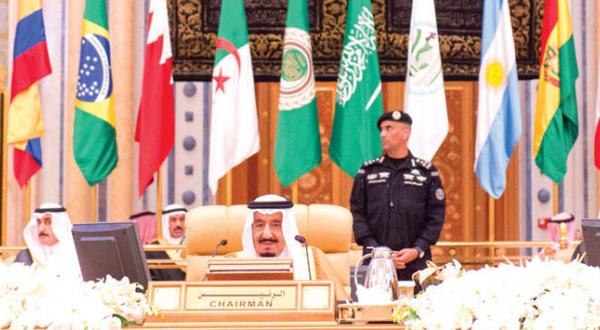If Arab countries searched for growing international powers that agree with them on main issues, then they will not find better powers to agree with them than the Latin American states at the Arab-Latin American Summit which ended on Wednesday. These issues include the the primary Arab issue, Palestine, the condemnation of Iranian interference in the internal matters of the region, the emphasis on the position on the legitimacy of Yemen and the Security Council Resolution 2216, and the arrival at a political solution for the Syrian crisis. Last but not least is the agreement on creating long term strategies to stabilise global oil markets and prices. This is what forms comprehensive support for the Arab position; the unification of visions in the major political issues afflicting the region.
It is not a secret that the phase where the countries of the world are subordinate to one leader or another has ended, and that the main countries of the world are at a new phase of international relations based on the creation of a number of alliances whilst continuing to maintain traditional alliances which no longer control the fate of the region’s issues on their own. Therefore, the convergence of the interests of key countries like Saudi Arabia and Egypt on one hand, and Brazil, Argentina and Venezuela on the other is a positive development in strengthening those alliances which are reflected in the interests of the countries themselves and are not linked to large, international parties regardless of their size, influence and power. The Saudi monarch emphasized this in his opening speech to the Summit by saying “We are satisfied with the conformity and convergence of our points of view regarding many international issues and we commend the positive attitudes of the friendly South American countries which support Arab causes, especially the Palestinian issue.” He added that “we strive to coordinate our positions regarding the issues posed on an international level, the combating of terrorism and extremism, and the spread of a culture of peace and dialogue.”
